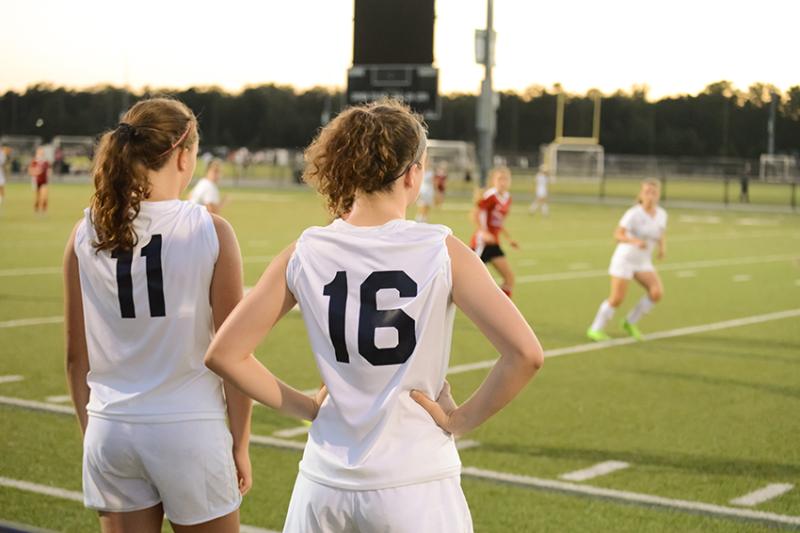Let's talk about 'character education'

Character is a meaningful concept, is learned at least as much as it is taught and can be woven into a school's culture.
Schools are deeply moral places. First as children then as young people, pupils learn what is right or wrong. In short they learn about character. It has always been so. Parents try to transmit their moralities to their progeny, schools do likewise with their charges. They are, after all, in loco parentis. Over the last few decades words which also have moral connotations such as ‘grit’ have also gained an epistemic one, that is to say one that signals an attitude to knowledge. While I very much welcome a move towards understanding dispositions for learning, I am uncomfortable with the relatively recent shift that suggests schools now have a responsibility for delivering ‘character education’.
The phrase character education comes freighted with baggage, not all of it helpful. For some it is associated with attributes gained through experiences in uniform. Or it is acquired via sports such as rugby or more generally through outdoor adventures. Sometimes it is presented as a new idea (it isn’t.) Other times it is introduced as something which needs to be time-tabled. Or by contrast, some argue it should be associated with extra-curricular activity. Many of us believe that it needs to be both integrated into the formal curriculum and a high-status part of a core co-curriculum offer.
The field of character education is a global one and is developing space, with an increasingly well-researched consensus as to its definition, greater clarity as to how it is developed and growing recognition of the power of culture in addition to curriculum.
Character is, arguably, the outcome of certain capabilities or habits of mind in action. We can’t be kind in the abstract and knowing some tips for persevering is useless if we constantly go to piece in the face of difficulty. Some capabilities have a moral dimension and others impact positively on learning[i]. The former includes kindness, generosity, the capacity to forgive and moral bravery. The latter has, for example, resilience, being imaginative, being inquisitive, being collaborative and being craftsmanlike. This second set is increasingly referred to as ‘performance character’ to distinguish it from capabilities with moral overtones.
In Educating Ruby: what our children really need to learn Guy Claxton and I imagine schools with capabilities permeated throughout their ‘DNA’. Some countries, Australia is a good example, have effectively begun to frame character as a series of cross-cutting capabilities. The PISA tests are also inching this way in their influential Innovative Domain with ‘Global Competence’ planned to sit alongside English, maths and science in 2018.
Kat Arney worries about the definition of the field and whether it can be taught or not. She refers to character education as ‘a hazy elixir’ about which Nicky Morgan spoke ‘obsessively’! Arney quotes James Arthur’s suggestion that character education is ‘simply good education’. But while this sweeps away the imagined novelty with which character education is viewed it becomes irrelevant as a concept if it is simply a synonym for ‘good education’. It also leaves us with a bigger question: ‘good education for what?’ For success in examinations? For happiness? For a lifetime of learning in a complex world? For virtue? For world domination?
‘Growth mindset’ and ‘grit’ make well-researched contributions to the field, but they are only part of it. Nobel laureate James Heckman has identified many more core capabilities which, taken together, constitute character: perseverance, self-control, trust, attentiveness, self-efficacy, resilience to adversity, openness to experience, empathy, humility, tolerance of diverse opinions and engaging productively in society[ii]. If character education is reframed as learning for capabilities like these then there are a number of advantages:
- We stop assuming that such capabilities can be taught as if they were aspects of science or geography (as Paul Tough argues compellingly[iii]).
- We start to recognise the power of culture, at school and at home, the importance of consistent adult role modelling.
- We start using proven learning and teaching methods within the formal curriculum and creating a range of well-planned opportunities within the co-curriculum in parallel with these.
There is more work to do in understanding the most reliable signature pedagogies and the most effective co-curricular learning for characterful capability. But framed in this way it is clearer that character is a meaningful concept, is learned at least as much as it is taught and can be woven into every aspect of a school’s culture. Learning for character is complex, but its core concepts are not hazy. We just need to look more carefully and, blending values with research, decide what is important to us.
This article was originally published on TES. Read the original article.



